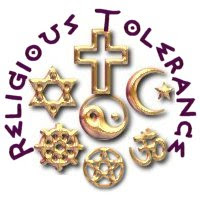Religious leaders of all stripes, gowns and headgear gathered in Jerusalem’s Mishkenot Sha’ananim neighborhood Wednesday to attend the third annual Interfaith Ethics and Tolerance conference. Bringing together Jewish and Muslim clerics, as well as clergy from numerous Christian denominations and those of the Bahai and Hindu faiths, the conference this year focused on the role of spiritual leaders in promoting peace and tolerance as well as the challenges of religious leadership in today’s globalized world.
Our organization has taken on the task of working to improve the ethical behavior of all peoples and all the adherents of all religions,” said Rabbi Yuval Cherlow of the Jerusalem Center for Ethics and head of the Petah Tikva Hesder yeshiva. “Unfortunately, the world is full of religious leaders who are part of the problem at the moment, so we are looking for ways in which religious leaders can be part of the solution.”
A series of blessings was also intoned by the assembled clergy, followed by the release of dozens of white balloons into the azure blue sky, some of which didn’t get stuck in a nearby tree.
“The problems of tolerance and intolerance are universal,” said Father Aleksander Archdeacon of Poland and representative of the Polish Orthodox Church to the Patriarchate of Jerusalem.
“In general, religion had done more to promote intolerance, warfare and hatred throughout history than anything else,” he told The Jerusalem Post. “As a religious person, I have to ask myself ‘How do I not compromise myself and my faith while at the same time not be guilty, as others have in the past, of promoting intolerance.’” Rabbi Cherlow was more circumspect about the notion of an ethical world without religion when relating to the claims of modern secularists that religion has caused division and conflict in the modern world.







